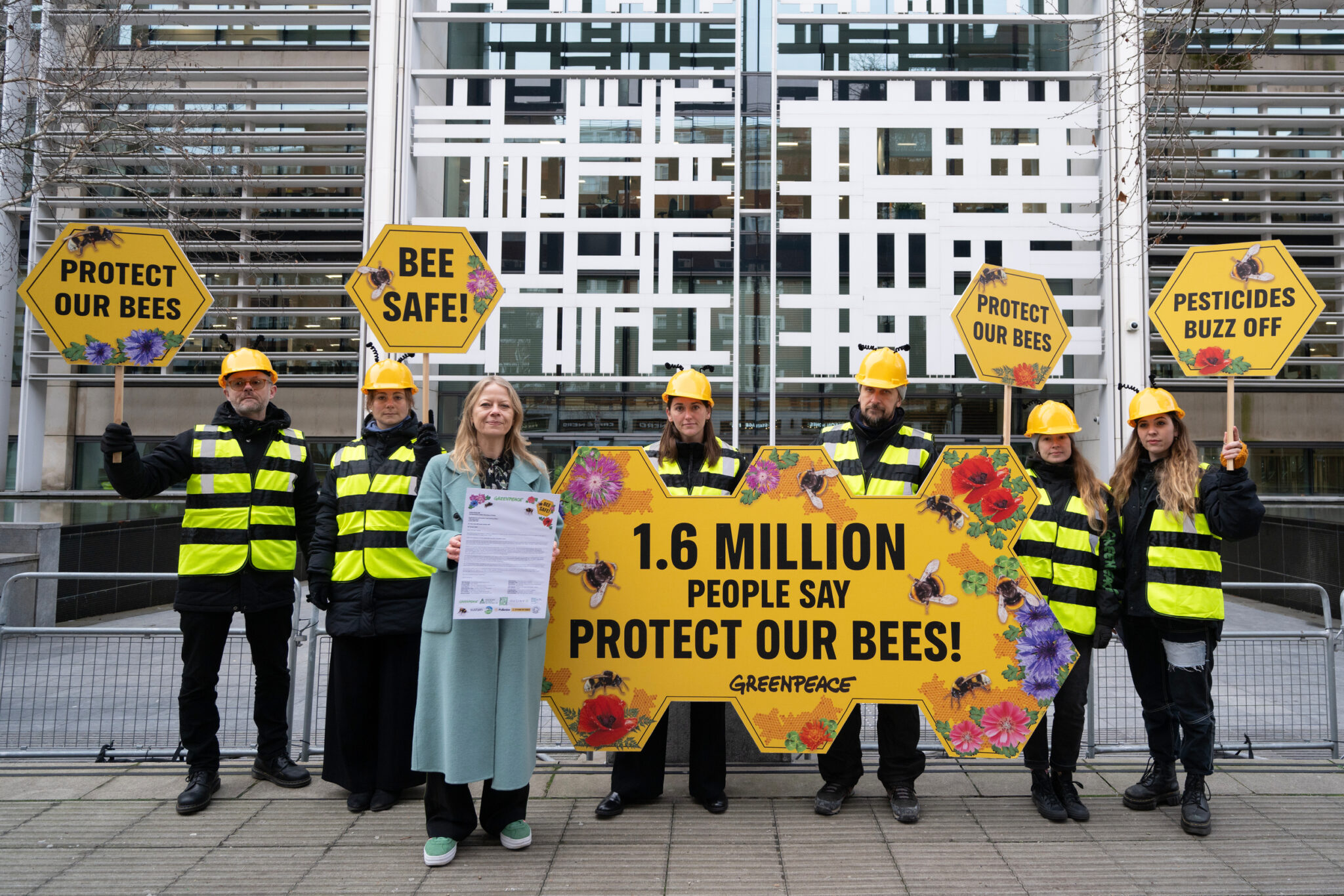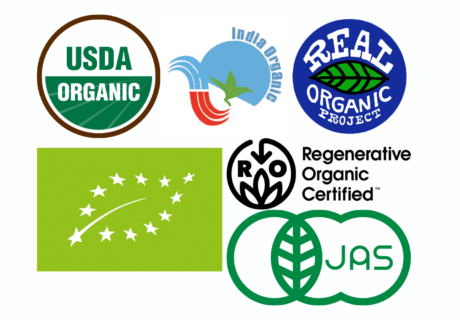A petition signed by over 1.6 million people calling for a complete ban on neonicotinoid pesticides, harmful to bees and other pollinators, has been delivered to the UK government. Environmental campaigners presented the petition to the Department for Environment, Farming and Rural Affairs (Defra) in a dramatic demonstration outside the department’s offices.
Dressed as worker bees, campaigners carried placards with messages like “Pesticides Buzz Off” and “Protect Our Bees” while delivering the petition in the form of a bee hotel to Environment Minister Emma Hardy. Green Party MP Siân Berry, a vocal advocate for environmental causes, joined the campaigners in support of the initiative.
The petition, coordinated by Greenpeace UK, garnered 1,645,000 signatures from the British public. It accompanies a letter signed by 15 leading climate and nature charities, including Greenpeace, the Wildlife Trusts, and the RSPB, urging the government to halt the emergency use of neonicotinoids on sugar beet crops.
In the letter they state: “By not allowing another emergency use of neonicotinoids, there will be more incentive for British Sugar and the government to fund research into alternatives, and to adopt nature-friendly farming approaches including Integrated Pest Management (IPM).”
Greenpeace UK’s campaigner, Anthony Lewis, said: “Using neonicotinoids to ‘protect’ crops is like setting fire to your house to protect it from burglars. Yes, it will destroy pests, but it will also kill bees and other vital pollinators we depend on for the food we’re trying to grow. It’s absurd.
“Bee populations have been decimated over recent years, with the use of neonicotinoids one of the drivers of this decline. As leading environmental charities and experts on nature protection, along with 1.6 million members of the public, we implore the government to implement a full and final ban on the use of all bee-killing pesticides once and for all.”
Bees play a vital role in pollinating crops and maintaining ecosystems, yet their numbers have plummeted, with wild bee populations declining by a third. Pesticides like neonicotinoids have been identified as a significant factor in this decline.
Although neonicotinoids were banned across Europe in 2018, the UK government has granted emergency authorisations for their use on sugar beet crops for four consecutive years. This decision has been made against the advice of the government’s own Expert Committee on Pesticides.
The Labour Party has pledged to end these exemptions for neonicotinoids, and the government recently announced plans to ban certain types of these chemicals. However, campaigners remain concerned about the possibility of another emergency authorisation this year.
A decision on this year’s emergency use of neonicotinoids is expected soon, leaving environmental groups and the public eagerly awaiting the outcome. Meanwhile, the petition and the accompanying protests send a clear message to the government: the public demands urgent action to protect bees and the environment.





